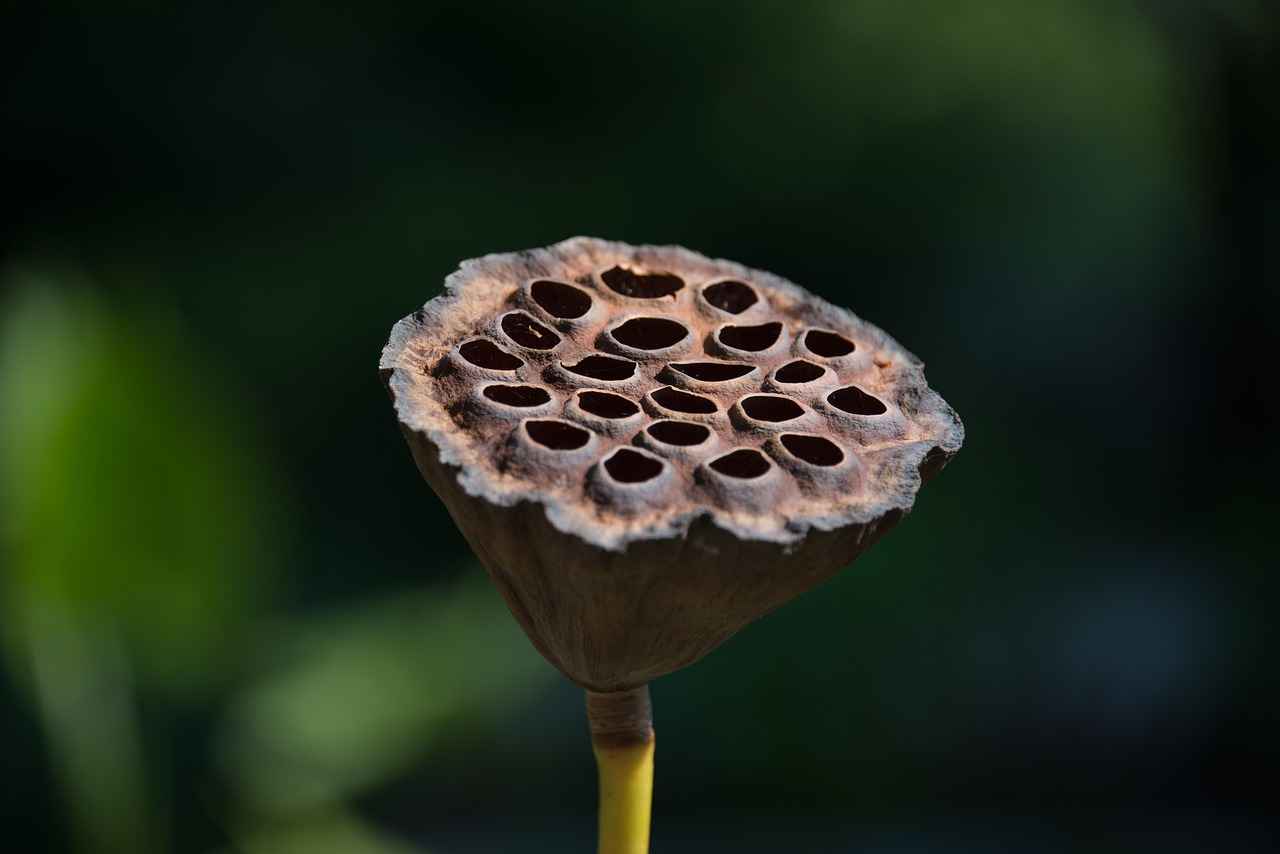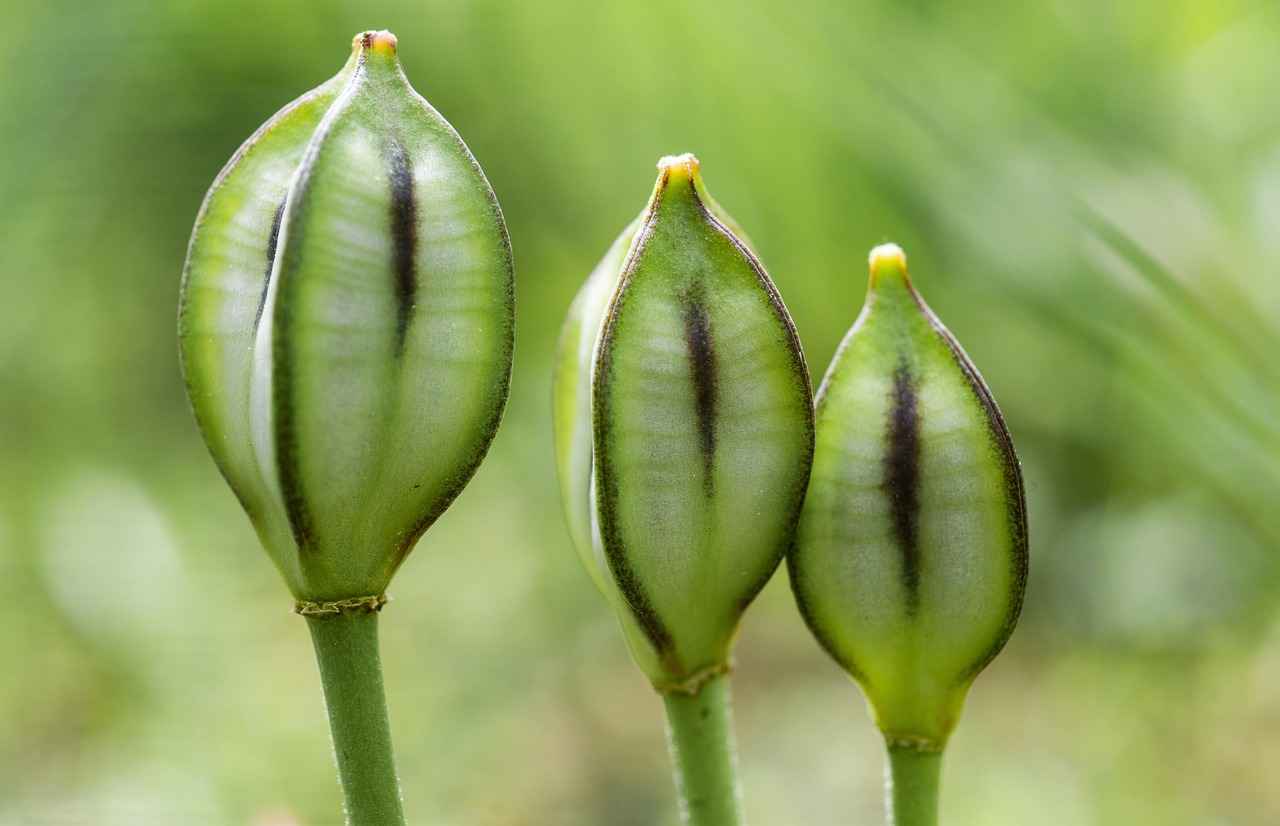Chia seeds have gained immense popularity in recent years, touted for their numerous health benefits and versatility in cooking. However, not all chia seeds are created equal. This article delves into the best sources for purchasing high-quality chia seeds, covering online retailers, local stores, and essential tips for ensuring product quality.
Choosing high-quality chia seeds is crucial for maximizing their nutritional benefits. These tiny seeds are rich in omega-3 fatty acids, fiber, and protein. Opting for premium seeds ensures that you receive the best flavor and health benefits, making your meals not only healthier but also more enjoyable.
Online shopping offers unparalleled convenience, allowing you to browse a wide selection of chia seeds from the comfort of your home. Here are some top online retailers:
- Amazon: A popular choice for many, Amazon provides a vast range of chia seed brands, including organic and non-GMO options. Customer reviews can guide your selection.
- Health Food Websites: Websites like Thrive Market and iHerb specialize in organic and health-focused products, often offering competitive prices.
- Brand Websites: Purchasing directly from reputable brands like Nutiva or Navitas Organics ensures you receive fresh products.
While many local grocery stores stock chia seeds, the quality can vary significantly. Here are some tips to assess the quality:
- Check the Packaging: Ensure the packaging is sealed and free from damage.
- Look for Certifications: Organic and non-GMO certifications can indicate higher quality.
- Expiration Dates: Always check the expiration date to ensure freshness.
Identifying fresh chia seeds is essential for reaping their health benefits. Here are some signs of freshness:
- Visual Inspection: Fresh chia seeds should be shiny and have a consistent color.
- Smell Test: Fresh seeds have a mild, nutty aroma. A rancid smell indicates they are spoiled.
- Taste Test: A small taste can reveal if the seeds are fresh; they should have a pleasant, nutty flavor.
To ensure you purchase the best quality chia seeds, avoid these common pitfalls:
- Unverified Brands: Stick to reputable brands with positive reviews to avoid low-quality products.
- Ignoring Expiration Dates: Outdated seeds can lose nutritional value and may not be safe to consume.
In conclusion, whether you choose to shop online or at your local grocery store, being informed about the quality of chia seeds is essential. By following these guidelines, you can confidently select high-quality chia seeds that enhance your health and culinary experiences.
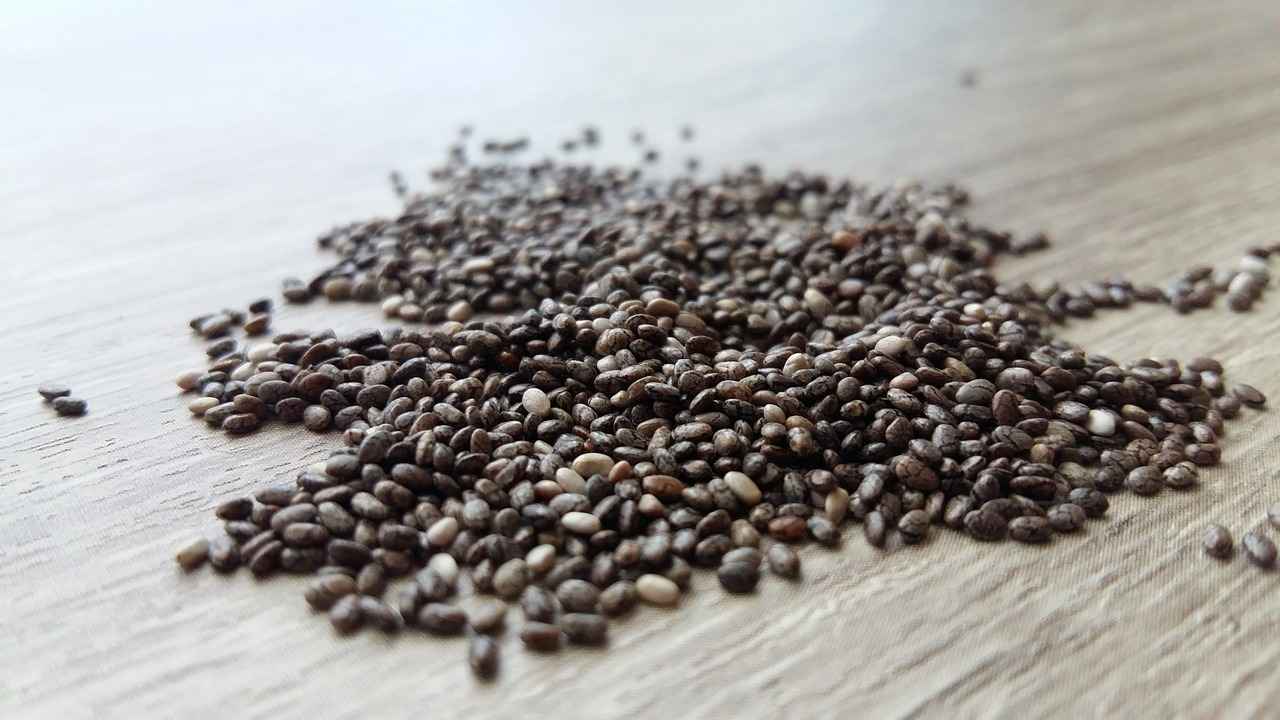
Why Choose High-Quality Chia Seeds?
Understanding the benefits of high-quality chia seeds can significantly enhance both your health and cooking experience. These tiny seeds, packed with nutrients, have gained immense popularity for their numerous health benefits. However, not all chia seeds are created equal. Sourcing premium seeds is essential for optimal nutrition and flavor, which can transform your meals and contribute positively to your overall well-being.
High-quality chia seeds are rich in omega-3 fatty acids, fiber, and protein, making them an excellent addition to a balanced diet. The nutritional profile of these seeds can help in lowering cholesterol, improving heart health, and supporting digestive health. When you choose premium seeds, you can expect higher levels of these essential nutrients, which may not be present in lower-quality options.
Moreover, the source of chia seeds matters. High-quality seeds are often organic and non-GMO, ensuring that you are consuming a product free from harmful pesticides and chemicals. This is particularly important for those who are health-conscious or have specific dietary restrictions. Premium chia seeds also tend to have a better flavor profile, offering a nuttier taste that can enhance your smoothies, salads, and baked goods.
When considering where to purchase chia seeds, it is crucial to look for reputable brands that prioritize quality. Many online retailers specialize in organic and high-quality chia seeds, providing a wide range of options to suit different budgets. Always check for certifications and read customer reviews to ensure you are making an informed decision.
Additionally, local health food stores often carry premium chia seeds. These stores typically focus on quality and sustainability, making them a reliable source for health-conscious consumers. When shopping in-store, don’t hesitate to ask staff about the seed’s origin and quality to gain further insights.
In conclusion, choosing high-quality chia seeds is a simple yet effective way to boost your health and cooking experience. By prioritizing premium seeds, you can enjoy the full spectrum of health benefits and flavors that these tiny superfoods offer. Remember to research and source your chia seeds carefully to ensure you’re making the best choice for your health.
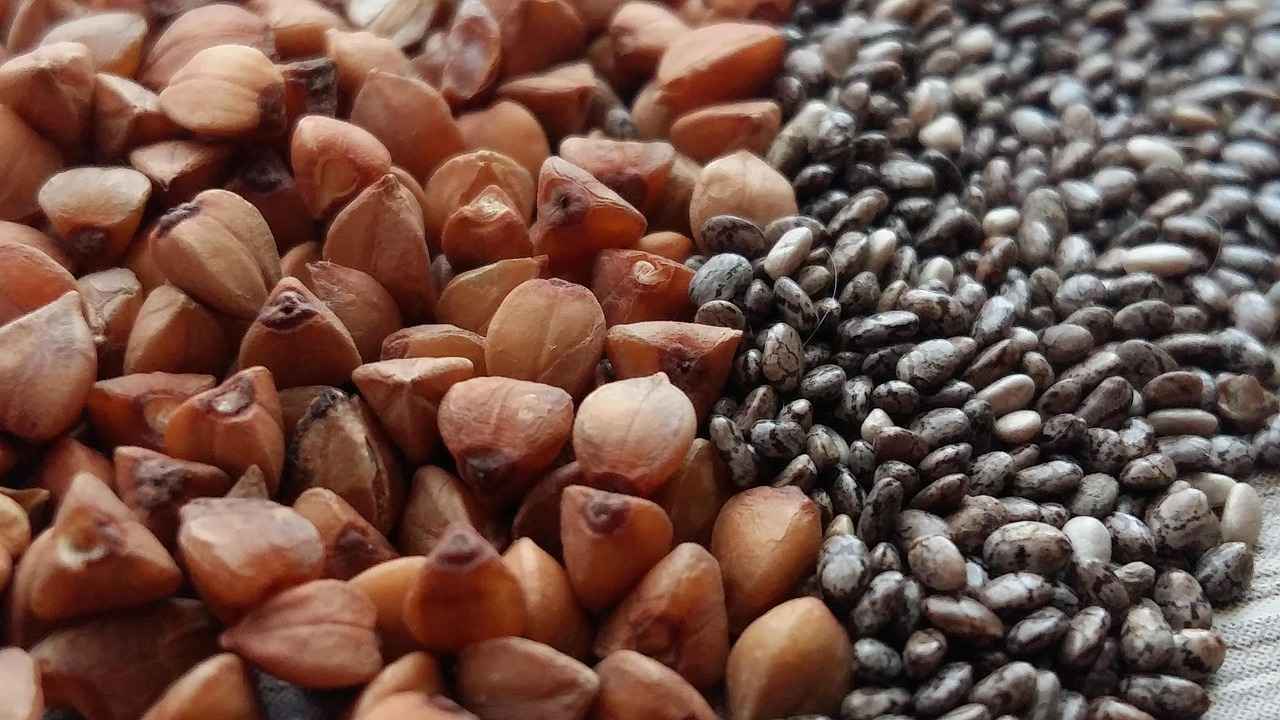
Where to Buy Chia Seeds Online?
In today’s fast-paced world, the convenience of online shopping has transformed how we purchase food items, including nutritious superfoods like chia seeds. With just a few clicks, you can access a wide array of options that cater to different dietary needs and budgets. This article will guide you through the best online retailers for buying high-quality chia seeds, focusing on organic and non-GMO varieties.
Online retailers offer several advantages when it comes to purchasing chia seeds. First and foremost, they provide a vast selection of brands and types, allowing you to compare prices and read customer reviews. Additionally, many online shops offer organic and non-GMO options, ensuring that you can find seeds that align with your health goals.
- Amazon: As one of the largest online marketplaces, Amazon features a wide range of chia seed options. You can find everything from bulk packages to smaller servings, making it easy to choose what fits your needs. Be sure to check customer reviews for quality insights.
- Thrive Market: This membership-based online grocery store specializes in organic and non-GMO products. Thrive Market often offers chia seeds at discounted prices, making it a great option for budget-conscious shoppers.
- iHerb: Known for its extensive selection of health products, iHerb stocks several brands of chia seeds. Customers appreciate the detailed product descriptions and user reviews that help in making informed choices.
- Health Food Websites: Many health-focused websites, such as Vitacost and Swanson, offer high-quality chia seeds. These retailers often provide detailed information about the sourcing and nutritional benefits of their products.
When purchasing chia seeds online, it is crucial to consider several factors to ensure you are getting the best quality:
- Certification: Look for organic and non-GMO certifications on the product labels. This ensures that the seeds have been sourced responsibly and are free from harmful chemicals.
- Expiration Dates: Always check the expiration date before making a purchase. Freshness is key to maximizing the health benefits of chia seeds.
- Customer Reviews: Reading reviews from other customers can provide valuable insights into the quality and taste of the seeds.
While online shopping offers convenience, there are some potential downsides to consider:
- Shipping Costs: Some retailers may charge high shipping fees, which can add to the overall cost of your purchase.
- Quality Control: Unlike buying in-store, you cannot physically inspect the chia seeds before purchasing, which may lead to receiving lower quality products.
In summary, the convenience of online shopping opens up a world of possibilities for purchasing high-quality chia seeds. By choosing reputable online retailers and being mindful of product details, you can easily find organic and non-GMO options that fit your budget and health needs.
Amazon: A Trusted Source?
When it comes to purchasing chia seeds, many consumers turn to Amazon due to its vast selection and convenience. However, it’s essential to weigh the pros and cons of buying from this popular online retailer. This section delves into the various aspects of purchasing chia seeds on Amazon, including customer reviews, product variety, and potential drawbacks.
- Wide Variety of Products: Amazon offers an extensive range of chia seed brands, including organic, non-GMO, and flavored options. This variety allows consumers to find the perfect product that fits their dietary needs and preferences.
- Competitive Pricing: Due to its large marketplace, Amazon often features competitive pricing. Shoppers can compare prices across different brands and choose the best deal.
- Customer Reviews: One of the most significant advantages of shopping on Amazon is access to customer reviews. Potential buyers can read feedback from others who have purchased the same product, providing insights into quality and taste.
- Convenience: With just a few clicks, consumers can order chia seeds and have them delivered right to their doorstep, saving time and effort.
- Quality Control Issues: Not all products on Amazon are of the same quality. Some lesser-known brands may not meet the same standards as established ones, leading to potential health risks.
- Shipping Concerns: Depending on the seller, shipping times can vary significantly. Some buyers may experience delays, which can be frustrating, especially if they need the seeds urgently.
- Misleading Product Descriptions: Occasionally, product descriptions may not accurately represent the item. It’s crucial to read reviews and check for verified purchases to ensure the product is as advertised.
To make an informed decision when buying chia seeds on Amazon, consider the following tips:
- Check for Certifications: Look for organic and non-GMO certifications on the product page to ensure you’re getting high-quality seeds.
- Read Customer Reviews: Pay attention to reviews that discuss the taste, freshness, and overall quality of the chia seeds.
- Compare Brands: Don’t settle for the first option. Compare different brands and their offerings to find the best fit for your needs.
- Look for Prime Shipping: If you’re an Amazon Prime member, consider products that are eligible for Prime shipping to ensure quicker delivery.
Customer reviews can be a treasure trove of information when selecting chia seeds. Many users emphasize the importance of freshness and taste, with some brands receiving consistent praise for their quality. However, it’s also common to find reviews highlighting issues like stale seeds or poor packaging. Always look for products with a high number of positive reviews to guide your choice.
In summary, while Amazon is a popular and convenient option for purchasing chia seeds, it’s crucial to approach your selection with careful consideration. By weighing the pros and cons, checking customer reviews, and following best practices for online shopping, you can confidently choose the best chia seeds for your health and culinary needs.
Specialty Health Stores
are an excellent choice for those seeking premium chia seeds. These stores focus on providing high-quality health products, making them a reliable source for organic and non-GMO options. Unlike conventional supermarkets, specialty health stores often prioritize quality over quantity, ensuring that their customers receive the best products available.
When you shop at a specialty health store, you not only gain access to premium chia seeds but also benefit from knowledgeable staff who can provide valuable information about the products. They can guide you on how to incorporate chia seeds into your diet and explain the various health benefits associated with them. This personalized service is often lacking in larger grocery chains.
One of the significant advantages of purchasing chia seeds from specialty health stores is the assurance of quality. These stores typically stock products that have been carefully sourced from reputable suppliers. You can find chia seeds that are organic, non-GMO, and free from harmful additives. This is especially important for health-conscious consumers who are mindful of what they put into their bodies.
Finding a specialty health store near you is easier than you might think. Here are some tips to help you locate one:
- Online Search: Use search engines to look for specialty health stores in your area. Keywords like “organic health store” or “natural foods store” can yield useful results.
- Local Directories: Check local business directories or community boards that list health-focused retailers.
- Social Media: Platforms like Facebook and Instagram often have pages for local businesses where you can find information about specialty health stores.
Once you find a store, consider visiting to explore their selection of chia seeds. Look for products that are stored in a cool, dry place to ensure freshness. Additionally, check for packaging that includes certifications such as USDA Organic or Non-GMO Project Verified, which can provide further assurance of quality.
In summary, specialty health stores are a fantastic option for purchasing high-quality chia seeds. They offer a wide range of products, knowledgeable staff, and a commitment to quality that can enhance your health and cooking experience. By taking the time to find a reputable store, you can enjoy the numerous benefits that chia seeds have to offer, from boosting your nutrient intake to adding texture to your meals.
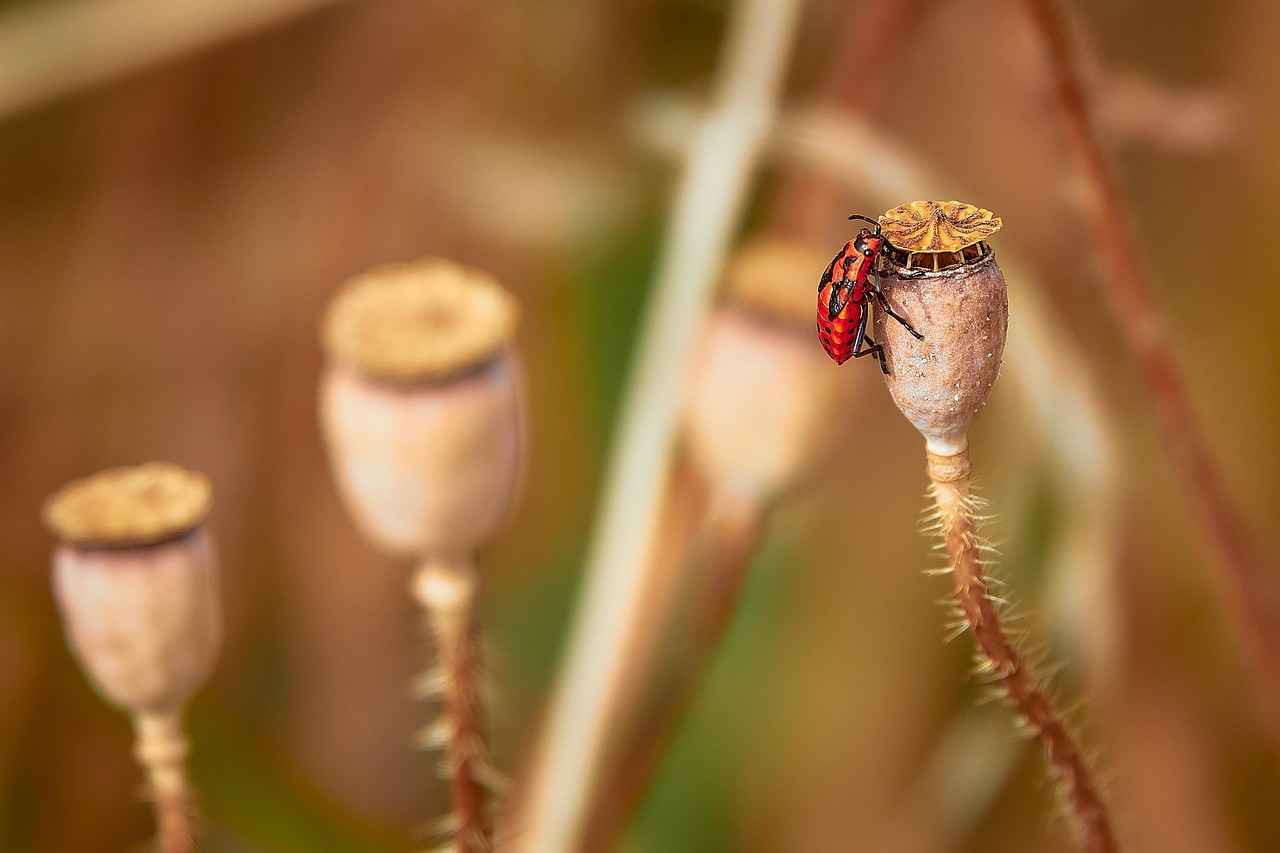
Local Grocery Stores: Are They Reliable?
When it comes to purchasing chia seeds, many people turn to their local grocery stores for convenience. However, the quality of chia seeds can vary significantly from one store to another. Understanding how to assess the quality of chia seeds available at your neighborhood store is essential for making informed choices that benefit your health and culinary endeavors.
Before you toss a bag of chia seeds into your cart, consider these key factors that can help you determine their quality:
- Check the Packaging: Look for clear labeling that indicates whether the seeds are organic, non-GMO, and free from additives. Certifications such as USDA Organic can be a good indicator of quality.
- Expiration Dates: Always check the expiration date on the packaging. Fresh chia seeds should have a long shelf life, but purchasing seeds that are close to their expiration date can compromise their nutritional value.
- Storage Conditions: Observe how the chia seeds are stored. Seeds kept in a cool, dry place are more likely to be fresh. Avoid purchasing seeds that are exposed to heat or direct sunlight.
Choosing between organic and non-organic chia seeds can impact your health benefits. Organic seeds are grown without synthetic pesticides and fertilizers, making them a safer option for health-conscious consumers. Non-organic seeds may still offer nutritional benefits, but they could contain residues from chemicals used during cultivation.
A simple visual inspection can reveal much about the quality of chia seeds:
- Color: High-quality chia seeds are typically dark brown or black. Avoid seeds that appear pale or have an unusual color.
- Texture: Fresh chia seeds should feel firm and slightly crunchy. If they feel soft or have an off texture, it may indicate staleness.
Another effective way to assess chia seed quality is through sensory evaluation:
- Smell: Fresh chia seeds have a mild, nutty aroma. If the seeds smell rancid or off, it’s best to avoid them.
- Taste: A small taste test can also help determine freshness. Fresh seeds have a slightly nutty flavor and a pleasant crunch.
To ensure you’re purchasing the best quality chia seeds, be aware of these common pitfalls:
- Unverified Brands: Stick to reputable brands that are known for their quality. Research customer reviews and product ratings to make informed decisions.
- Ignoring Expiration Dates: Never overlook expiration dates. Consuming outdated seeds can lead to health risks and diminished nutritional benefits.
By following these guidelines, you can confidently select high-quality chia seeds from your local grocery store. Remember, investing in quality chia seeds not only enhances your health but also elevates your culinary creations. Whether you’re adding them to smoothies, baked goods, or salads, fresh chia seeds can provide a nutritious boost that supports your overall well-being.
Checking Labels for Quality
is an essential step in ensuring you purchase the best chia seeds available. With the growing popularity of these tiny powerhouses, the market is flooded with various brands and products. To avoid confusion and make an informed decision, it’s vital to understand what to look for on the packaging.
When evaluating chia seeds, consider the following aspects:
- Certifications: Look for labels that indicate organic certification or non-GMO (Genetically Modified Organism) status. These certifications ensure that the seeds are grown without harmful pesticides or genetic modifications, which can be detrimental to health.
- Expiration Dates: Always check the expiration date on the packaging. Chia seeds, like any other food product, can lose their nutritional value over time. Consuming expired seeds can lead to digestive issues and diminished health benefits.
- Packaging Type: Quality chia seeds are often sold in airtight packaging to maintain freshness. Avoid products in clear plastic bags, as exposure to light can degrade the seeds and reduce their nutritional content.
- Source Information: Reputable brands often provide information about the source of their chia seeds. Knowing where the seeds are grown can give you insight into their quality and sustainability practices.
- Ingredient List: Ideally, the ingredient list should be short and simple, containing only chia seeds. Avoid products with added preservatives or fillers that may compromise quality.
Understanding product labels not only helps you select high-quality chia seeds but also enhances your overall health and cooking experience. By paying attention to these details, you can ensure that you are making a wise investment in your health.
Additionally, consumer reviews can be a valuable resource when assessing the quality of chia seeds. Look for brands with positive feedback regarding taste, texture, and health benefits. This information can guide you toward making the best choice for your dietary needs.
Another critical factor to consider is the origin of the chia seeds. Many high-quality seeds are sourced from regions known for their agricultural practices, such as South America. Brands that emphasize their sourcing practices often provide a better guarantee of quality.
In conclusion, being vigilant about can significantly impact your health and satisfaction with chia seeds. By focusing on certifications, expiration dates, packaging, and sourcing information, you can confidently choose products that align with your health goals.
Organic vs. Non-Organic Chia Seeds
When it comes to choosing between organic and non-organic chia seeds, the decision can significantly influence your health benefits. Chia seeds are renowned for their nutritional profile, rich in omega-3 fatty acids, fiber, and antioxidants. However, the source of these seeds can alter their quality and the health benefits they provide.
Organic chia seeds are cultivated without the use of synthetic pesticides, herbicides, or fertilizers. This means that the seeds retain their natural properties, which can be beneficial for health. Additionally, organic farming practices promote biodiversity and environmental sustainability. When you choose organic, you are not just opting for healthier seeds; you are also supporting sustainable agricultural practices.
On the other hand, non-organic chia seeds may be grown using conventional farming methods, which can involve the use of chemicals. While they still provide nutritional benefits, the presence of pesticides and other chemicals can be a concern for some consumers. If you are particularly sensitive to chemicals or prefer to avoid them, opting for organic is advisable.
- Higher Antioxidant Levels: Studies suggest that organic chia seeds may contain higher levels of antioxidants compared to their non-organic counterparts.
- Reduced Chemical Exposure: Choosing organic means you are minimizing your exposure to harmful chemicals that may linger on non-organic seeds.
- Flavor and Freshness: Many consumers report that organic chia seeds have a richer flavor and fresher taste, enhancing their culinary use.
Your choice between organic and non-organic chia seeds should align with your personal health goals and values. If you prioritize health and environmental sustainability, organic chia seeds may be the better choice. However, if you are on a budget, non-organic seeds still offer health benefits and can be a cost-effective option.
When deciding on chia seeds, consider the following:
- Research Brands: Look for reputable brands that provide transparency about their farming practices.
- Read Labels: Ensure that the seeds are certified organic if you choose that route.
- Check for Freshness: Fresh seeds will have a pleasant nutty aroma and a firm texture.
In summary, the choice between organic and non-organic chia seeds can significantly impact your health benefits. By understanding the differences and considering your personal preferences, you can make an informed decision that aligns with your dietary needs and lifestyle.
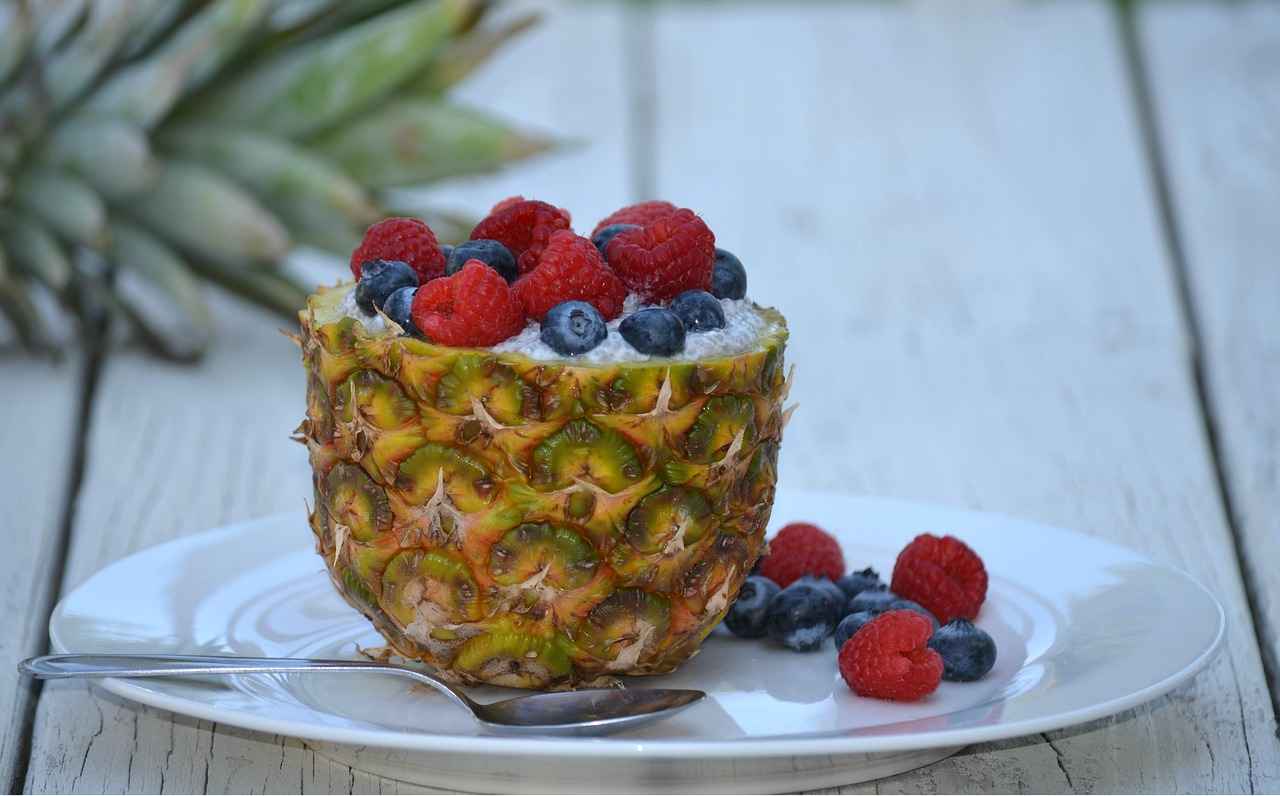
How to Identify Fresh Chia Seeds?
When it comes to incorporating chia seeds into your diet, ensuring their freshness is crucial for maximizing their health benefits. Fresh chia seeds are packed with nutrients, including omega-3 fatty acids, fiber, and antioxidants. However, old or stale seeds can lose their nutritional value and even develop an unpleasant taste. This article will guide you on how to identify fresh chia seeds and provide tips for proper storage.
One of the simplest ways to assess the freshness of chia seeds is through a visual inspection. Here are some characteristics to consider:
- Color: Fresh chia seeds typically have a rich, dark color. Look for seeds that are deep brown or black; avoid those that appear dull or faded.
- Texture: The seeds should be firm and slightly glossy. If they feel sticky or clump together, it may indicate that they are old or have absorbed moisture.
- Size: Fresh chia seeds are uniform in size. If you notice a significant variation in size, it may suggest a mix of old and new seeds.
Engaging your senses can also help determine the freshness of chia seeds. Here’s how:
- Smell: Fresh chia seeds have a mild, nutty aroma. If they emit a rancid or off-putting smell, it’s a sign they may be spoiled.
- Taste: A small taste test can also be revealing. Fresh seeds should have a pleasant, slightly nutty flavor. If they taste bitter or stale, it’s best to discard them.
Proper storage is essential for keeping chia seeds fresh. Here are some effective storage methods:
- Keep Them Cool: Store chia seeds in a cool, dry place away from direct sunlight. A pantry or cupboard is ideal.
- Use Airtight Containers: Transfer seeds into airtight containers to protect them from moisture and air, which can lead to spoilage.
- Refrigeration: For long-term storage, consider keeping chia seeds in the refrigerator or freezer. This can extend their shelf life significantly.
Always check the expiration date on the packaging before purchasing chia seeds. Consuming seeds past their expiration date can pose health risks and diminish the benefits you expect from them. Even if the seeds look fine, they may have lost their nutritional potency.
Identifying fresh chia seeds is vital for maximizing their health benefits. By conducting a visual inspection, engaging your senses through smell and taste tests, and following proper storage practices, you can ensure that the chia seeds you consume are fresh and nutritious. Remember, investing in high-quality chia seeds not only enhances your meals but also supports your overall health.
Visual Inspection Tips
When it comes to purchasing chia seeds, visual inspection plays a crucial role in determining their freshness and overall quality. By knowing what characteristics to look for, you can ensure that you are selecting the best seeds for your health and culinary needs. Here are some essential tips to help you assess the quality of chia seeds through a simple visual inspection.
- Color: Fresh chia seeds typically exhibit a rich, dark color. Whether you choose black or white chia seeds, ensure that they have a consistent hue without any discoloration or pale spots.
- Texture: Quality chia seeds should feel firm and slightly crunchy to the bite. Avoid seeds that appear shriveled or have a soft texture, as this may indicate that they are stale or improperly stored.
- Size: Look for seeds that are uniform in size. Inconsistent sizes can suggest poor quality or a mix of different seed batches.
- Presence of Debris: Inspect the seeds for any foreign particles or debris. High-quality chia seeds should be clean and free from dust, dirt, or other contaminants.
Fresh chia seeds not only provide better nutritional benefits but also enhance the flavor of your recipes. Stale seeds can lose their essential oils, leading to a bland taste and diminished health benefits. Thus, ensuring freshness is paramount.
After purchasing high-quality chia seeds, proper storage is essential to maintain their freshness. Store them in a cool, dry place, preferably in an airtight container to protect them from moisture and light exposure. Keeping them in the refrigerator can further extend their shelf life.
In addition to visual inspection, consider conducting a smell test. Fresh chia seeds should have a mild, nutty aroma. If they emit a rancid or off-putting smell, it’s best to avoid them. Similarly, a taste test can also be revealing; fresh seeds should have a pleasant, slightly nutty flavor without any bitterness.
By following these and additional quality checks, you can confidently select fresh chia seeds that will enhance your health and culinary experiences. Always remember that investing time in assessing the quality of chia seeds pays off in the long run, ensuring you reap the maximum benefits from this superfood.
Smell and Taste Tests
When it comes to purchasing chia seeds, ensuring their freshness is crucial for maximizing their health benefits and culinary potential. One of the most effective ways to assess the quality of chia seeds is through . These sensory evaluations can provide significant insights into the seeds’ freshness and overall quality.
Chia seeds, like many other natural products, can lose their potency and flavor over time. By using your senses, you can determine whether the seeds are still viable for consumption. Here’s how:
- Fresh Aroma: High-quality chia seeds should have a mild, nutty scent. If you detect a rancid or off-putting odor, it may indicate that the seeds have gone bad.
- Storage Conditions: The way chia seeds are stored can affect their smell. Ensure they are kept in a cool, dry place away from direct sunlight to maintain their freshness.
Sampling chia seeds can also reveal a lot about their quality. Here’s what to consider:
- Flavor Profile: Fresh chia seeds should have a subtle, earthy taste. If the seeds taste bitter or have an unpleasant aftertaste, it could mean they are stale or improperly processed.
- Texture: When chewed, fresh chia seeds should feel slightly crunchy but not hard. A rubbery or mushy texture can be a sign of age.
Before you even engage your senses, a visual inspection can help you gauge the quality of chia seeds:
- Color: Look for seeds that are a consistent dark brown or black hue. Discoloration might indicate poor quality or spoilage.
- Clumping: Fresh chia seeds should not clump together. Clumping can suggest moisture exposure, which can lead to spoilage.
To ensure that your chia seeds remain fresh for as long as possible, consider the following storage tips:
- Airtight Containers: Store chia seeds in airtight containers to prevent moisture and air from degrading their quality.
- Cool, Dark Places: Keep them in a pantry or cupboard away from heat and light sources.
- Refrigeration: For extended shelf life, consider refrigerating chia seeds, especially if you buy in bulk.
Utilizing smell and taste tests is an excellent way to ensure the chia seeds you consume are fresh and high-quality. By pairing these sensory evaluations with visual inspections and proper storage techniques, you can enjoy the maximum benefits of chia seeds in your diet. Remember, freshness not only enhances the flavor but also boosts the nutritional value, making your meals more wholesome and enjoyable.

What to Avoid When Buying Chia Seeds?
When it comes to purchasing chia seeds, many consumers often overlook crucial factors that can affect both their health and wallet. Understanding what to avoid can significantly enhance your shopping experience and ensure you are getting the best quality seeds available.
Choosing the right chia seeds involves more than just picking a package off the shelf. Here are some common pitfalls to avoid:
- Ignoring Brand Reputation: One of the biggest mistakes is opting for unverified brands. These brands may offer lower prices, but they often compromise on quality. Always research the brand’s reputation and read customer reviews to ensure you are purchasing from a reliable source.
- Overlooking Packaging: The packaging of chia seeds can tell you a lot about their quality. Look for seeds that are stored in opaque, resealable bags to protect them from light and air, which can degrade their quality over time.
- Neglecting to Check Expiration Dates: Always check the expiration date before purchasing chia seeds. Outdated seeds not only lose their nutritional value but can also lead to health risks. Freshness is key for maximizing the benefits of these tiny superfoods.
- Choosing Non-Organic Options: While not all non-organic chia seeds are bad, opting for organic varieties can offer better health benefits. Organic seeds are less likely to contain pesticides and other harmful chemicals, making them a safer choice for your health.
- Failing to Assess Seed Size and Color: High-quality chia seeds should be a rich black or white color and uniform in size. Avoid seeds that appear dull or have an inconsistent color, as these may indicate poor quality or age.
Investing in high-quality chia seeds is essential for several reasons:
- Nutritional Value: Premium chia seeds are packed with essential nutrients, including omega-3 fatty acids, fiber, and protein. Lower-quality seeds may lack these vital components.
- Flavor and Texture: Fresh, high-quality seeds tend to have a better flavor and texture, enhancing your culinary creations. Stale seeds can have a bitter taste and an unpleasant texture.
- Health Benefits: Consuming fresh chia seeds can contribute to better digestion, weight management, and overall health. Poor quality seeds may not provide the same benefits.
To ensure you’re making a wise purchase, consider the following:
- Research Online Reviews: Websites like Amazon or health food blogs can provide insights into which brands are favored by consumers.
- Visit Specialty Stores: Local health food stores often carry higher-quality chia seeds compared to regular grocery stores. Don’t hesitate to ask staff for recommendations.
- Look for Certifications: Certifications such as USDA Organic or Non-GMO Project Verified can help you identify high-quality products.
By being mindful of these factors, you can avoid common pitfalls when purchasing chia seeds, ensuring you get the best quality for both your health and your budget.
Beware of Unverified Brands
When it comes to purchasing chia seeds, the quality of the product can significantly impact your health and overall experience. One of the most critical factors to consider is the brand you choose. ; opting for these can lead to poor quality seeds that may not provide the health benefits you expect.
Choosing reputable brands is essential for ensuring that you receive high-quality chia seeds. Established brands often have rigorous quality control measures in place, ensuring that their products meet industry standards. When you select a well-known brand, you can trust that the seeds have been sourced responsibly and processed under safe conditions.
- Inconsistent Quality: Unverified brands may not adhere to strict quality standards, leading to inconsistencies in taste, texture, and nutritional value.
- Contaminants: There is a higher risk of contamination with unverified brands, which can include harmful pesticides or other chemicals.
- Misleading Claims: Some unverified brands may make exaggerated health claims that are not supported by scientific evidence.
When searching for high-quality chia seeds, consider the following:
- Certifications: Look for organic certifications or third-party testing labels that indicate the product’s quality and safety.
- Transparency: Reputable brands often provide detailed information about their sourcing and production processes.
- Customer Reviews: Reading reviews from other consumers can provide insights into the quality and reliability of the brand.
Before making a purchase, take the time to research the brands you are considering. Here are some practical steps:
1. Visit the brand's official website.2. Check for customer testimonials and reviews.3. Look for any certifications or quality assurances.4. Compare prices with other reputable brands to gauge value.
Some brands have established a reputation for quality and reliability in the chia seed market. Here are a few examples:
- Nutiva: Known for its organic chia seeds, Nutiva is a well-respected brand in the health food community.
- Bob’s Red Mill: This brand offers a variety of high-quality seeds and is recognized for its commitment to quality.
- Terrasoul Superfoods: Offering organic and non-GMO options, Terrasoul is a favorite among health-conscious consumers.
In summary, choosing unverified brands when purchasing chia seeds can lead to poor quality and potential health risks. By sticking to reputable brands, you can ensure that you are getting the best quality seeds that provide the nutritional benefits you seek. Always do your research, check for certifications, and read customer reviews to make informed decisions.
Expiration Dates Matter
When purchasing chia seeds, one crucial aspect that often gets overlooked is the expiration date. This simple detail can significantly impact both your health and your culinary experience. Chia seeds, like all food products, have a limited shelf life, and consuming outdated seeds may lead to adverse effects.
Expiration dates serve as a guideline for the freshness and potency of chia seeds. Over time, the oils in chia seeds can go rancid, which not only diminishes their nutritional value but can also lead to unpleasant flavors and odors. Consuming rancid seeds may cause digestive discomfort or other health issues.
Outdated chia seeds can lose their rich nutrient profile, including essential fatty acids, fiber, and antioxidants. These nutrients are vital for maintaining good health. When seeds are past their expiration date, they may no longer provide the health benefits you expect. Instead, they could contribute to nutritional deficiencies rather than enhancing your diet.
Using expired chia seeds can also affect your cooking experience. Chia seeds are often used as a thickening agent or a binding ingredient in recipes. Expired seeds may not perform as intended, leading to undesirable textures and flavors. For instance, if you’re making chia pudding or a smoothie, old seeds might not absorb liquid properly, resulting in a less appealing dish.
When shopping for chia seeds, always check the packaging for the expiration date. Look for clear labeling that indicates when the seeds should be consumed by. Additionally, consider the following tips:
- Choose reputable brands: Well-known brands are more likely to adhere to quality standards.
- Inspect the packaging: Ensure that the packaging is intact and free from damage.
- Check for certifications: Organic and non-GMO certifications can also indicate better quality.
Proper storage can extend the shelf life of chia seeds. Store them in a cool, dry place, preferably in an airtight container to minimize exposure to air and moisture. Refrigeration can further prolong their freshness, especially if you buy in bulk.
In summary, always prioritize checking expiration dates when buying chia seeds. Doing so ensures that you are consuming seeds that are not only safe but also beneficial for your health and cooking endeavors. By being vigilant about the quality of your chia seeds, you can fully enjoy their numerous health benefits and enhance your culinary creations.
Frequently Asked Questions
- What are chia seeds and why are they popular?
Chia seeds are tiny, nutrient-dense seeds from the Salvia hispanica plant. They are popular for their high omega-3 fatty acid content, fiber, and antioxidants, making them a favorite among health enthusiasts.
- How can I tell if my chia seeds are fresh?
To check for freshness, look for seeds that are shiny and have a consistent color. They should not have any off-putting smells or unusual clumps. A taste test can also help; fresh seeds have a mild, nutty flavor.
- Where can I find high-quality chia seeds?
You can find high-quality chia seeds at specialty health stores, organic markets, and online retailers like Amazon. Always look for labels that indicate organic or non-GMO certifications.
- Are organic chia seeds worth the extra cost?
Yes, organic chia seeds are often grown without harmful pesticides and fertilizers, making them a healthier choice. The investment can lead to better nutrition and peace of mind about what you’re consuming.
- What should I avoid when buying chia seeds?
Avoid purchasing seeds from unverified brands or those without clear expiration dates. Checking for certifications and reading customer reviews can help you avoid low-quality products.
